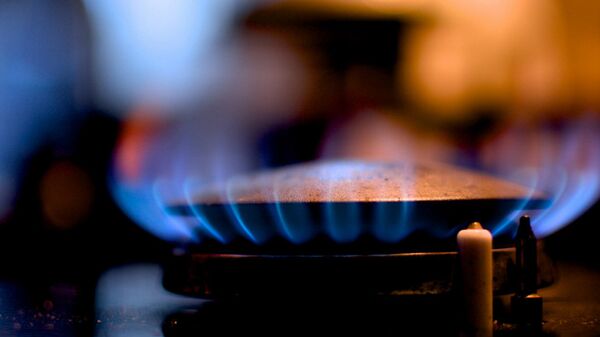The European Union imports 53 percent of all its energy — 90 percent of it is crude oil.
Europe is also heavily dependent on one single supplier, Russia. Six European countries depend entirely on Russia for their gas supply.
The #EnergyUnion is key for the EU's competitiveness: debate at @AmChamEU with @ristori20
— Energy4Europe (@Energy4Europe) March 24, 2015
In an attempt to reduce this dependence, the European Commission is considering creating an Energy Union. According to Jerzy Buzek, Polish chair of the European Parliament's energy committee, an Energy Union will sure up internal security, resilience, boost economic growth, as well as jobs.
"It is not directed against someone externally. Developments in relations with Russia might have been an impulse for us to shift up a gear in our energy considerations, but altering the EU's relationship with Russia or any other party is not one of the Energy Union's goals."
And the prospect of an Energy Union became a hot topic at a recent meeting.
#Energy & #industry to be discussed this afternoon at #businesseuropeday with @ristori20 and @jerzybuzek http://t.co/iGaD62ktMp #EnergyUnion
— Energy4Europe (@Energy4Europe) March 26, 2015
France says member states should invest more in the Energy Union; Belgium says the strength of the Union depends on Europe's global clout. MEP Kathleen Van Brempt said:
"What we need is a decarbonized economy. There was a time in Europe we were pioneers when it came to new technologies, renewable energies, energy efficiency…but other areas of the world are overtaking us."
Germany has expressed support for the Union, if done properly. MEP Rebecca Harms, said: "If it is done properly it could give us the best way to protect the climate and bring innovation in the industrial sectors and also guarantee security of supply vis à vis Russia and other countries that we are dependent on at the moment."
Storify of @AmChamEU plenary on #EnergyUnion with keynote address from @ristori20. Many thanks @gazzema! https://t.co/0Vn2jv6qVf
— Ava Lloyd (@AmChamEU_ALL) March 25, 2015
In 2013, Europe's energy bill amounted to around 400 billion euros. Stephen Kohler, German expert in energy economics and policies told Sputnik News that Europe must keep an eye on the price of fuel: "There is liquefied gas — but it is more expensive than natural gas that is delivered through pipelines from Russia. This should be taken into account."
Kohler, who sits on the advisory council for in GETEC Energy Holding GmbH, said:
"If western Europe rejects Russian gas, the economic impact will be palpable. Therefore, I am very wary of such proposals."
"What's more, Russia has established itself as a reliable supplier and partner over many years. So I do not think that such measures are necessary today," said Kohler.


